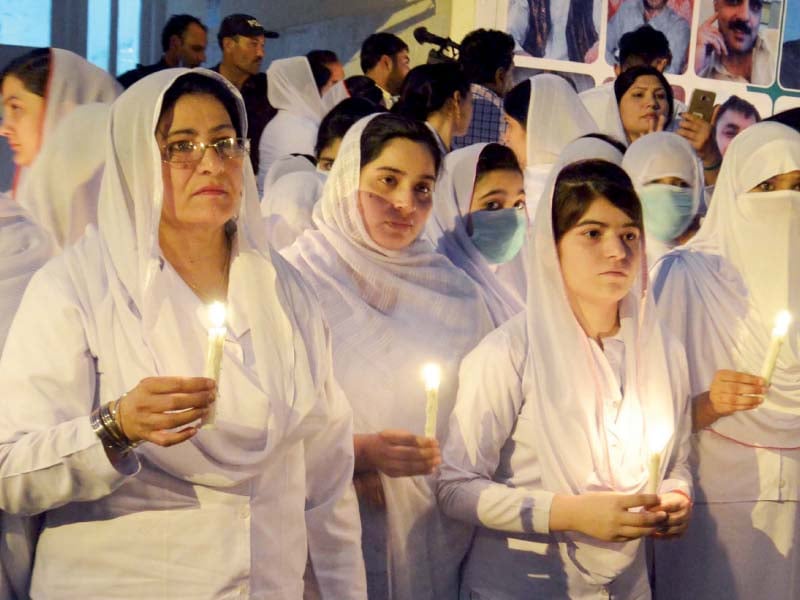
The provincial capital of Balochistan remained deserted throughout the day following a shutter-down strike announced by political parties, traders and lawyers against the bombing at the Civil Hospital, where lawyers had gathered after the murder of Balochistan Bar Association president Bilal Anwar Kasi.
Google pays tribute to Quetta attack victims
Officials said the death toll had risen to 73. Another 26 people of over 140 wounded in the brazen attack are in a critical condition.
The bloodletting left the city reeling, with fear and panic evident from the cautious movement of people in public spaces. Soldiers patrolled near-empty streets in the city as all schools, colleges, universities, shops, markets, offices, medical stores and restaurants were closed, bringing routine life to a complete halt.
Traffic was thin on the roads and attendance at government offices remained low. National flag atop all government buildings was lowered to half-mast to honour the victims.
Queues of ambulances lined up outside hospitals to transport the coffins of the victims to their hometowns. A majority of the slain lawyers belonged to Chaman, Loralai, Qila Saifullah, Muslim Bagh, Pishin, Nushki, Mastung, Kalat, Khuzdar, Naseerabad Turbat and Panjgur.
Thousands of people also attended the funerals and burials of the lawyers who were laid to rest in different graveyards of Quetta.
A case against the murder of Bilal Kasi was registered under the Anti-Terrorism Act on the complaint of his brother Shoaib Kasi. Police and security forces have launched a massive manhunt in different localities of Quetta and detained at least 10 suspects.
Quetta weeps again
Balochistan police chief Hassan Mehboob presided over a high-level meeting to review the law and order situation and constituted two committees to investigate the targeted killing of Bilal Kasi and the subsequent suicide bombing.
Chief Minister Sanaullah Zehri vowed the perpetrators of the attack would not be spared and would be made an example for other terrorists.
“The terrorists think that we will take a step back from their coward actions but we will fight until the elimination of all terrorists. Combing operations will be carried out in all areas of Balochistan,” he said while talking to reporters during a visit to the Civil Hospital .
Supreme Court Chief Justice Anwar Zaheer Jamali, Punjab Chief Minister Shahbaz Sharif, Pakistan Tehreek-e-Insaf Chairman Imran Khan, Awami Muslim League chief Sheikh Rasheed and Federal Minister Mir Hasil Bizenjo all flew in Quetta to express solidarity with the victims.
Twenty-seven injured victims of the attack have been shifted to the Aga Khan University Hospital in Karachi and 14 of them have undergone initial surgical procedures. Other patients will also undergo surgeries in the upcoming days, a spokesperson said. He said the majority of the patients suffered fractures and burn injuries.
Protest rallies
The legal fraternity took to the streets in all major cities, including Islamabad, Peshawar, Karachi and Quetta, against the bombing that killed almost 60 lawyers alone.
Army chief terms Quetta attack bid to undermine Zarb-e-Azb success
In different cities of Khyber-Pakhtunkhwa, civil society activists, lawyers and journalists staged rallies to protest against the Quetta carnage.
Lawyers of superior and lower courts observed a strike and boycotted court proceedings. The Peshawar High Court Bar Association passed a unanimous resolution condemning the suicide blast, terming it a ‘barbaric attack against humanity’. The association called for forming a judicial commission to investigate the incident.
Social activists gathered outside the Peshawar Press Club to protest against the Quetta incident and also held a candlelight vigil to pay homage to the victims. Journalists also criticised the government over its failure to protect the lives of innocent people and demanded a ‘Shuhada package’ like the one given to martyrs of police and military personnel.
According to the Balochistan Union of Journalists, 43 journalists have lost their lives in the line of duty in the past 10 years in the restive province alone.
Across Sindh, the boycott of courts by the legal fraternity entered its second consecutive day as lawyers continued to mourn their comrades slain in Quetta.
The Karachi Bar Association held a general body meeting, denouncing terrorism and calling on the government to take serious measures to provide security to the people.
In Hyderabad, lawyers associated with the Sindh High Court Bar Association and Hyderabad District Bar Association offered funeral prayers in absentia for the victims of the attack.
Security at courts was stepped up to avert any untoward incident.
Lawyers in Islamabad, Rawalpindi and across the Potohar regions also observed complete strike and boycotted court proceedings. Islamabad Bar Association, Islamabad High Court Bar Association as well as the Islamabad Bar Council had given the call for the strike.
The lawyers’ bodies also called upon the government to increase security at all court premises across Pakistan.
Journalist bodies also held a demonstration to show solidarity with the victims of Quetta carnage, which included two television cameramen.
Social activists, lawyers and political workers all called for countering the extremist thought by reforming the curricula to end terrorism in Pakistan.
Published in The Express Tribune, August 10th, 2016.
















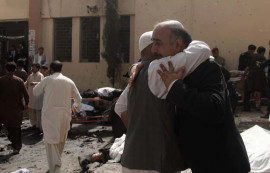
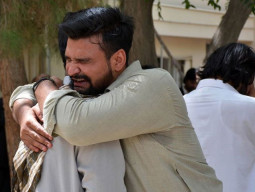
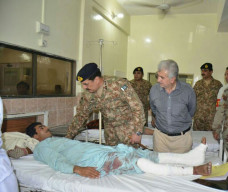

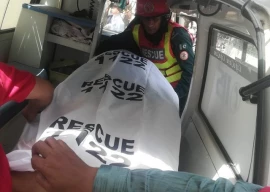
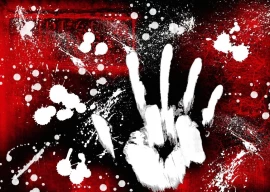

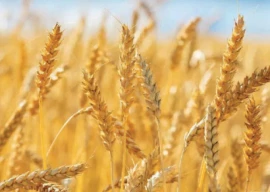
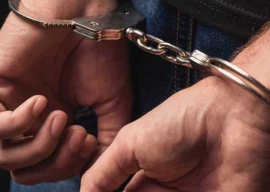




















COMMENTS
Comments are moderated and generally will be posted if they are on-topic and not abusive.
For more information, please see our Comments FAQ